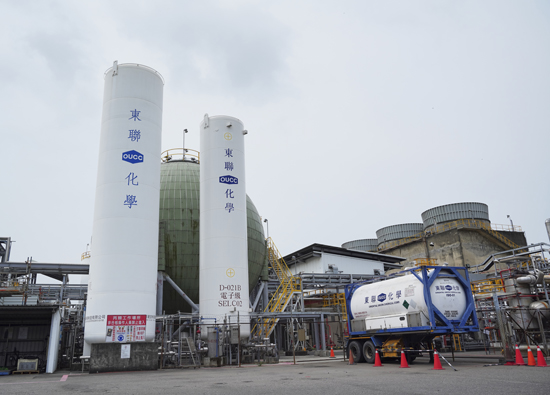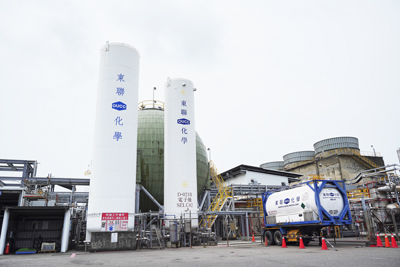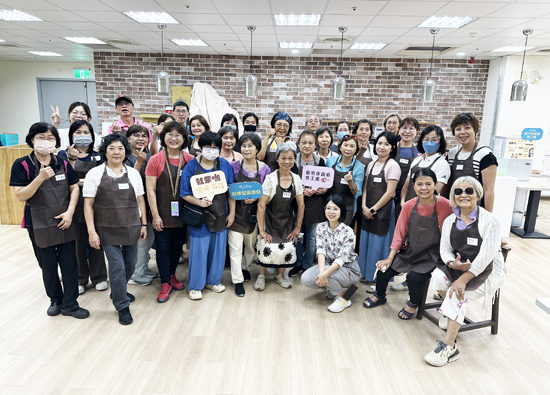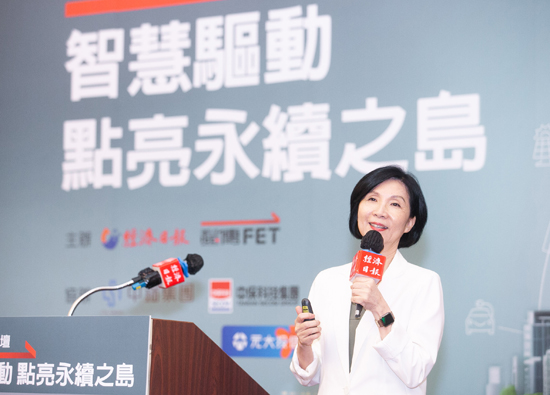09.2024 Cover Story
Oriental Union Chemical Corporation leads sustainable future through research and development driven innovation
Oriental Union Chemical Corporation / Fang Xuan



Oriental Union Chemical Corporation is committed to green sustainability and practices a recycled economy. In addition to emphasizing issues such as industrial safety, health, and environmental protection, we strive to balance the development of chemical production with environmental protection. We also continuously improve process design and invest in equipment to reduce environmental impact.
Source emission reduction
Climate change is a major challenge facing the world, and its impact has gradually manifested in environmental, economic, social and other aspects. Enterprises play a key role in it, partly because their operational activities cause greenhouse gas emissions, exacerbating the impact of climate change; On the other hand, enterprises also need to adjust their operating models to address the risks and challenges brought about by climate change, in order to ensure sustainability development.
Since 2000, Oriental Union Chemical Corporation has been focusing on carbon reduction related issues and investing resources in the field of carbon capture and reuse (CCU). Considering that carbon dioxide (CO2) emissions mainly come from the side reaction between ethylene and oxygen in the production process of ethylene oxide/ethylene glycol factories, the most efficient catalyst in the industry is specially selected. This not only saves the use of raw material ethylene, but also reduces the generation of CO2 from the source. The CO2 generated in the process is passed through a carbon capture system and sent to a purification system to produce ultra-high purity liquid CO2. In addition to supplying customers in different fields such as food, industry, and electronics, it can also be processed into ethylene carbonate (EC) for supply to polycarbonate, composite materials, lithium battery electrolytes, and other fields. While reducing carbon emissions, it also creates economic benefits and turns waste gas into gold. In addition, Oriental Union Chemical Corporation also produces high-performance carbon capture solvents such as ethanolamine and ethyleneamine to assist customers in carbon capture and contribute to global carbon reduction efforts.
According to GHG inventory data, only 10% of Oriental Union Chemical Corporation's carbon emissions come from direct emissions during the manufacturing process, while the rest come from purchased electricity (70%) and steam (20%). Therefore, in addition to promoting CO2 recovery and reuse, the company has also established a cross departmental energy-saving and carbon reduction committee, held regular meetings, continuously improved processes, and promoted a series of energy-saving, steam saving, and low-carbon fuel replacement plans, such as renovating high power consuming water pumps and compressors, and changing the fuel of the heat medium heating furnace and thermal storage incinerator (RTO) system from diesel to natural gas. In addition, we are actively evaluating the establishment of solar photovoltaic systems, natural gas electricity symbiosis equipment, and striving for clean energy such as offshore wind power to move towards a sustainable vision.

Green Product Development: Practicing Recycled Economy
Oriental Union Chemical Corporation is a professional manufacturer of chemical products, mainly producing the bulk chemical ethylene glycol (MEG) in the early days. In recent years, we have been driving transformation through research and development, actively developing specialized products, and integrating the concept of recycled economy into our research and development. We have launched environmentally friendly and low-carbon chemicals, such as:
A recycled polyester polyol product containing 50% recycled raw material (r-PET), combined with 20% recycled material developed by Far Eastern New Century Corporation for clothing, has been validated by downstream customers.
An environmentally friendly detergent containing 20% recycled raw material (r-PET), with low foaming, high biodegradability, and high washing ability. Its carbon footprint is reduced by about 35% compared to traditional products with the same cleaning power, and it has passed downstream customer laundry ball product application tests.
Develop a series of environmentally friendly solvents and non-ionic surfactants embedded with CO2.
Looking ahead to the future
In response to the high uncertainty of climate and various challenges posed by rapid changes in policies and markets, Oriental Union Chemical Corporation has listed environmental sustainability development as a category of enterprise risk management, believing that aligning with a low-carbon economy is an important key for enterprises to move towards sustainable operation. To this end, the company has started from a management perspective. In addition to daily operations, the development of a sustainable environment has been listed as a governance policy, and a "Corporate Sustainability Promotion Committee" has been established. Regular work meetings are held to coordinate and promote green sustainability development work. Through the company's risk management process, risks and opportunities related to climate issues are evaluated, and response plans are assessed.
In addition, considering the rise of the AI industry and the sustained prosperity of Taiwan's electronics and semiconductor industries, the demand for related industry supply chains has grown significantly. In addition to existing electronic grade carbon dioxide, ethanolamine (MEA), triethanolamine (TEA), diethylene glycol butyl ether (DB) and other products, Oriental Union Chemical Corporation will also continue to develop the chemicals and special gases needed by the industry to assist in the vigorous development of related industries.
Looking ahead, Oriental Union Chemical Corporation will be driven by research and development to develop more green chemicals, promote recycled economy, energy transformation, and low-carbon production. At the same time, in line with the global trend of technological development, we will operate steadily, create value shared by shareholders, customers, and employees, and achieve the sustainable goals of reducing carbon emissions by 25% by 2030 and achieving carbon neutrality by 2050.
#



















